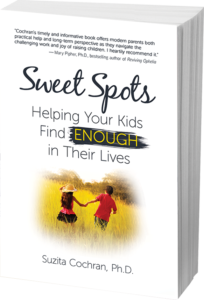 My friend Renee’s son Ben is sixteen and a junior in high school. In his freshman year he joined his school’s crew team and has been rowing with them ever since. If you are from a land-locked or water-scarce place, it’s likely your local high school doesn’t have a crew team. But in the Northeast, Ben’s home, they’re fairly common.
My friend Renee’s son Ben is sixteen and a junior in high school. In his freshman year he joined his school’s crew team and has been rowing with them ever since. If you are from a land-locked or water-scarce place, it’s likely your local high school doesn’t have a crew team. But in the Northeast, Ben’s home, they’re fairly common.
Ben is one of those kids for whome things have always come easily. He’s funny, gets good grades, and has participated in a variety of sports over the years. But Renee told me rowing was different from the start. Rowing and Ben were a perfect fit. He loved the calm, focused feeling he had out on the water. But he also enjoyed working so closely with a team of seven other rowers at such a demanding, competitive sport. It turned out his tall, lanky build was ideal for rowing and he quickly advanced in the sport.
By junior year, Ben was in the varsity boat and pretty much lived for rowing. His coaches noticed his skill and began to discuss college rowing scholarships–my friend Renee was thrilled. While he did quite well in school, Ben saw himself as a rower, first and foremost. All his big life decisions soon revolved around rowing.
Then this past winter, during the crew team’s indoor training season, Ben was skiing with friends one weekend and collided with a snowboarder. He sustained a considerable concussion and was told to take a two-week break from exercise. After two weeks, though, Ben was still experiencing brain injury symptoms, including trouble focusing on schoolwork and difficulty falling asleep. His doctor said to take two more weeks of rest.
At this point, Ben has begun working with a specialized head injury clinic, and he and his parents are hopeful that they will soon understand what treatments he needs for his recovery.
But suddenly everything is different. Ben’s personal narrative completely changed that afternoon on the ski slope. The narrative Ben’s parents had about their son was also altered radically after his injury.
Daniel Pink has a chapter on “Story” in his book, A Whole New Mind: Why Right-Brainers Will Rule the Future. In it he quotes a cognitive scientist:
“Narrative imagining–story–is the fundamental instrument of thought. It is our chief means of looking into the future, of predicting, of planning, and of explaining…Most of our experience, our knowledge and our thinking is organized as stories.”
Pink summarizes the “Story” chapter with:
“We are our stories. We compress years of experience, thought, and emotion into a few compact narratives that we convey to others and tell ourselves…Story represents a pathway to understanding that doesn’t run through the left side of the brain….[We] hunger for what stories provide–context enriched by emotion, a deeper understanding of how we fit in and why that matters.”
These concepts underlie a type of psychotherapy called narrative therapy. This therapeutic approach is based on the fact that we each create stories of our lives which are so interwoven into our view of ourselves and our interactions in the world that we’re hardly aware our personal story is still merely a story.
Knowing the power one’s life story has, narrative therapists seek first to understand an individual’s current life story. Then they work with the person to modify it into a healthier narrative, often integrating positive characteristics and strengths which had been previously omitted.
Ben reminded me of all this. He’s in a tough position. His prior narrative as a strong, competent rower no longer fits. Although the “successful rower” narrative would be hard for anyone to let go, and it may end up being his story again after he recovers, right now it likely brings sadness and frustration to Ben’s life.
Renee told me about their experience. She said it had clearly been rough for Ben, especially being an adolescent when one’s sense of self is so central and often fragile. But in her honest and thoughtful way, she acknowledged how hard it also was for her to move past the rowing narrative for her son.
How to Move Forward
A new story could help Ben and his parents through this challenging time. Knowing Ben and his family, I hope they are able to create another narrative, one that weaves in characteristics of Ben’s such as patience, perseverance, inner-strength, and even sense of humor. At the center of this narrative could be someone who can overcome the obstacles life throws at him, with the help of supportive family and friends.
“Our stories can shape our future…Telling stories of struggle that turn out well may give people the hope they need to live productive lives. And [narratives] that vividly describe turmoil seem to help people grow wiser in the aftermath of major life challenges,” says psychology professor Dan McAdams, summarizing his research area of personal narratives.
I loved the way writer Sadie Dingfelder described one’s life stories. “We don’t just tell stories, stories tell us.”

 Sweet Spots: Helping Your Kids Find ENOUGH in Their Lives.
Sweet Spots: Helping Your Kids Find ENOUGH in Their Lives.

